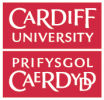© Pint of Science, 2024. All rights reserved.
From rockets to the internet, trying to understand our place in the universe often acts as the main driving force behind many technological advances. However, the real-life applications of space cameras and superconductors are often overlooked...until now. Working our way from detecting the early signs of cancer to growing high-quality diamonds, we'll hear about how cutting-edge research from Cardiff's School of Physics & Astronomy could improve daily life in the future.
Diamond - not all that glitters is gold
Professor Oliver Williams
(Professor in Experimental Physics)
With over 1000 tonnes a year being produced a year for industrial applications,
diamond is much more than a gemstone. Diamond forms under pressures more
than 100000 times atmospheric pressure and temperatures greater 1800 oC within
the Earth. These conditions are difficult to produce in the laboratory but new
technologies can produce higher quality material than nature at drastically
reduced cost. This talk will explain how scientists have been able to exploit and
perfect diamond growth and applications.
diamond is much more than a gemstone. Diamond forms under pressures more
than 100000 times atmospheric pressure and temperatures greater 1800 oC within
the Earth. These conditions are difficult to produce in the laboratory but new
technologies can produce higher quality material than nature at drastically
reduced cost. This talk will explain how scientists have been able to exploit and
perfect diamond growth and applications.
From Space to DNA
Dr Peri Jones
(STEM communicator, Science made Simple)
Using world leading equipment from the Astronomy Instrumentation Group at Cardiff University, we can detect tiny changes in DNA. DNA bases are the building blocks of life, and by looking at them using different light, we can learn more about what we are all made up of. When DNA is damaged, it can lead to harmful diseases or cancer, but there’s potential to use far-infrared to detect tiny changes that could help conquer cancer. I am going to talk about the application of physics to biology and medicine and how astronomy instrumentation can be used to potentially detect early signs of cancer.
Map data © OpenStreetMap contributors.

